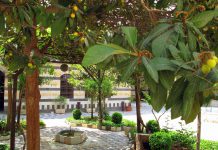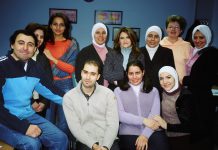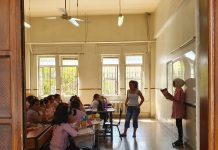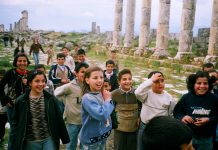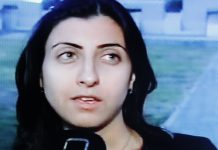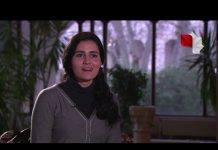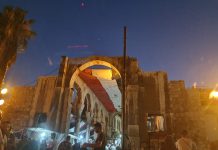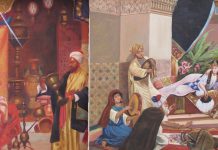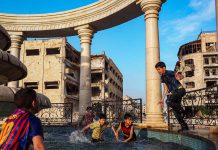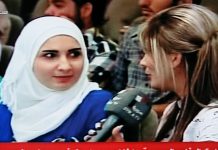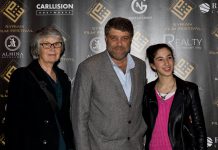Martin Luther King’s Anti-War Stand
Sunday 25 March 2018
– Interviewer: Susan Dirgham
– Camera: Sean Hwang
2018 marks the 50th anniversary of Martin Luther King’s assassination. I interviewed people at the Palm Sunday March in Melbourne to bring attention to Martin Luther King’s anti-war message and to consider its relevance today.
Those interviewed included an Australian Defence Force chaplain and Rev Andreas Lowe, the Anglican Dean of Melbourne.
Palm Sunday is an important day for many Christians around the world. It is the Sunday before Easter, and it commemorates the day Jesus entered Jerusalem to celebrate the Passover, after travelling 70 miles from his home in Galilee.
Rev. Howard Bess, a retired American Baptist minister, writes in Consortium News (‘Palm Sunday: History and Tradition’, 25 March 2018) about the myths surrounding Palm Sunday and about reasons for protest on that day.
For Rev. Bess, ‘Jesus was a religiously devout and practicing Jew, who was killed for his political activities.’ He writes,
The Romans were masters of the vision of greatness. They called it Pax Romana. In fact the Romans had a vast propaganda program that justified the gap between the wealthy and the poor. It was unimaginable no matter what they called it. Jesus saw through all the ugliness, seeing it as a wholesale denial of justice. His entry into Jerusalem was the beginning of a week of protest….
In our America, protest marches have been used effectively to bring about change. The American master of the protest march was Martin Luther King Jr. When he led marches, he was using the tool of Jesus, the protest march. Many Christians kept advising King to back off from his protest marches. He kept on marching. His “Letter from Birmingham Jail” is one of the truly great literary pieces of our history. It was addressed to the clergy of Birmingham. Protest marches are unsettling to the majority. They produce consequences that are not comfortable for the protesters. King was in a jail in Birmingham because of his non-violent protest marching. Jesus was killed because he protested.
In March 1959, Martin Luther King delivered a Palm Sunday Sermon at Dexter Avenue Baptist Church. In it, he declared,
… This is the time in the year when we think of the love of God breaking forth into time out of eternity. This is the time of the year when we come to see that the most powerful forces in the universe are not those forces of military might but those forces of spiritual might.
In that sermon, Dr King spoke about the life and work of Mahatma Gandhi.
I would say the first thing that we must see about this life is that Mahatma Gandhi was able to achieve for his people independence [Congregation:] (Yes) through nonviolent means. I think you should underscore this. He was able to achieve for his people independence from the domination of the British Empire without lifting one gun or without uttering one curse word. He did it with the spirit of Jesus Christ in his heart and the love of God, and this was all he had. He had no weapons. He had no army, in terms of military might. And yet he was able to achieve independence from the largest empire in the history of this world without picking up a gun or without any ammunition.
At the Palm Sunday rally in Melbourne, we handed out a flyer with quotes from Martin Luther King’s address ‘Why I am opposed to the war in Vietnam’, delivered on 30 April 1967.
THE GREATEST PURVEYOR OF VIOLENCE
I knew that I could never again raise my voice against the violence of the oppressed in the ghettos without first having spoken clearly to the greatest purveyor of violence in the world today: my own government.
WESTERN ARROGANCE
The Western arrogance of feeling that it has everything to teach others and nothing to learn from them is not just. A true revolution of values will lay hands on the world order and say of war, “This way of settling differences is not just.”
AMERICA’S ALLIES and THE TRUTH
This is who we are supporting in Vietnam today. Oh, our government and the press generally won’t tell us these things, but ….. The truth must be told.
CONFORMITY and UNCERTAINTY
Even when pressed by the demands of inner truth, men do not easily assume the task of opposing their government’s policy, especially in time of war. Nor does the human spirit move without great difficulty against all the apathy of conformist thought within one’s own bosom and in the surrounding world. Moreover, when the issues at hand seem as perplexing, as they often do in the case of this dreadful conflict, we’re always on the verge of being mesmerized by uncertainty. But we must move on.
WE MUST SPEAK
We must speak with all the humility that is appropriate to our limited vision, but we must speak.
…. of course, one of the difficulties in speaking out today grows the fact that there are those who are seeking to equate dissent with disloyalty. It’s a dark day in our nation when high-level authorities will seek to use every method to silence dissent. But something is happening, and people are not going to be silenced. The truth must be told, and I say that those who are seeking to make it appear that anyone who opposes the war in Vietnam is a fool or a traitor or an enemy of our soldiers is a person that has taken a stand against the best in our tradition.
WE SHALL OVERCOME
And I have not lost faith. I’m not in despair, because I know that there is a moral order. I haven’t lost faith, because the arc of the moral universe is long, but it bends toward justice. I can still sing “We Shall Overcome” …
. And I don’t know about you, I ain’t gonna study war no more.
REFERENCES:
“Beyond Vietnam”, Riverside Church, New York, 4 April, 1967, King Encyclopaedia, Stanford Education
“Why I Am Opposed to the War in Vietnam“, Riverside Church, New York, 30 April 1967, Transcript of Martin Luther King’s address, Gary Handman, UC Berkeley Media Resources Center, 2006
MLK:A Call To Conscience, Part 2, 2010, PBS documentary by Tavis Smiley
Rev. Dr. Martin Luther King, Jr. Speech At Sproul Plaza (1967) – San Fransisco Bay Area Television Archive
by Susan Dirgham


